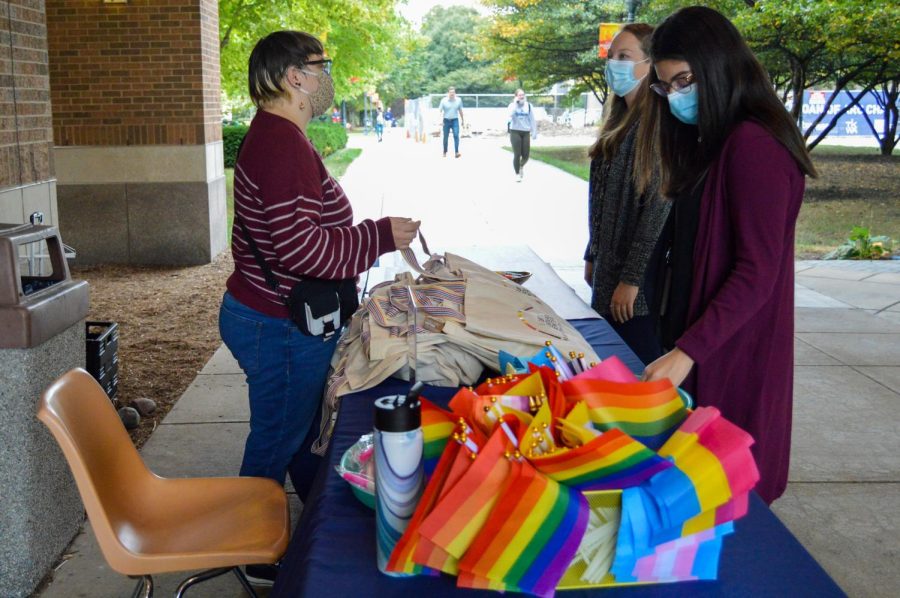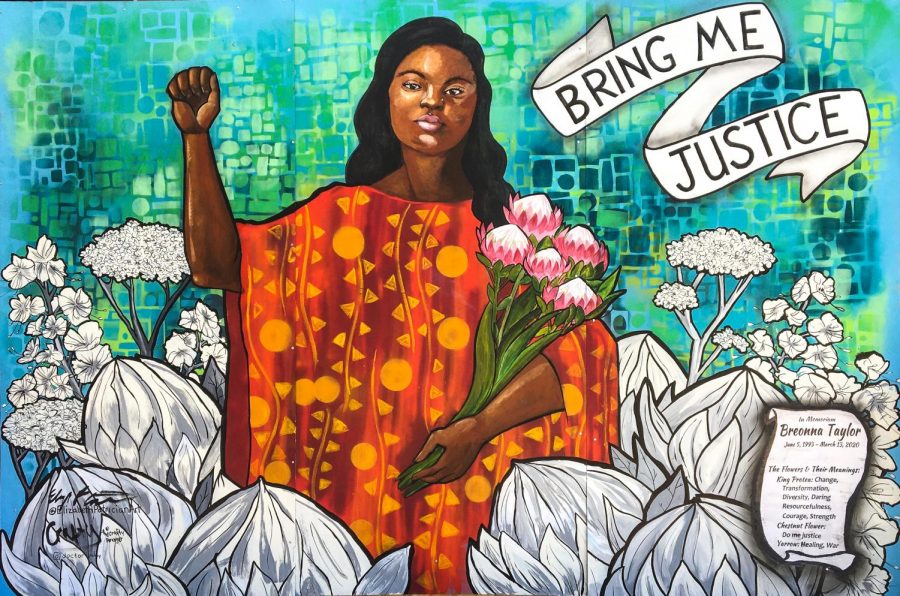Two years after millions took to the National Mall following President Donald Trump’s inauguration, women gathered in cities throughout the United States to show support for women’s rights at the third annual Women’s March.
This powerful movement has become an event intertwined with exclusion and drama.
This year, tensions were high as one of the march’s leaders was accused of making anti-Semitic comments and engaging in racist rhetoric, according to a recent ABC news article. Co-president of the march, Tamika Mallory, did not fully condemn anti-Semitic comments a minister had made who she recently praised on social media.
The Democratic National Convention and the National Association for the Advancement of Colored People pulled out their sponsorships from the event after this news surfaced, ABC news reported.
Some cities hosting marches this year faced similar problems. A march in Eureka, California was cancelled this year based on “overwhelmingly whiteness” in attendance in past years, according to an article from The Cut.
Three years ago, I participated in the Women’s March in Washington D.C. Moms and kids in my hometown drove 11 hours, slept on a bus sitting upright and did not shower or brush our teeth for three days. Still, attending the march was the most life-changing weekend I’ve ever had.
The finale of the day happened at the White House. Marchers congregated on the muddy grass, and they laid down their multitude of signs on the dewy ground, creating a rainbow of messages.
The messages written on the signs were all different. Scanning each sign, I realized each individual had their own unique reason to walk.
These different reasons are what makes the Women’s March so important. Intersectional feminism is a vital way to view the world. It involves looking at women’s experiences as complicated and intricate, and these experiences are personal to the individual. For example, I may be a woman, but my experience as a white, straight woman may differ from a brown woman who is bisexual. Highlighting those differences and the issues that impact different groups of women is vital to creating a progressive society.
Change comes from understanding we have differences, but those differences do not need to tear us down and break us apart. Instead, it is important to realize women are stronger together and change will come if we want it to. A Jewish women clearly has different experiences than a Muslim or Christian women, and because of this women should be building each other up, instead of standing with those who make offensive comments about religion, race, gender or anything in between.
According to a New York Times exit poll in 2016, 54 percent of white women voted for Donald Trump, while 94 percent of black women voted for Hilary Clinton. This overwhelming difference in voting demographics in voting points to the idea that women tend to look out for their individual interests, instead of thinking more broadly about women in general. Their individual experiences shape who they vote for.
In 1848, a group of abolitionist women and some men gathered in Seneca Falls, New York to discuss equality. By the end of the convention, the women agreed that American women deserved the right to their own political autonomy through the right to vote.
While times were obviously different more than 100 years ago, these women ultimately received the right to vote in 1920 because they understood the benefits of uniting behind a common goal. While today’s goals may differ, there may be more drama because there is not one common goal to unite behind that creates this strong bond. Instead, what has emerged seems to be individuals fighting with one another.
Women around the world all have differences. A transgender woman’s stories and where her passion lies regarding advocacy and causes differs from an African-American woman’s perspective on the world. Being a woman and the past history and discrimination of women throughout time can be enough of a bond to bring us together. A march to promote change for women can be unifying simply through the fact that women all have unique experiences that make them different, but together we can be even stronger – and that comes with respect and understanding for all.







